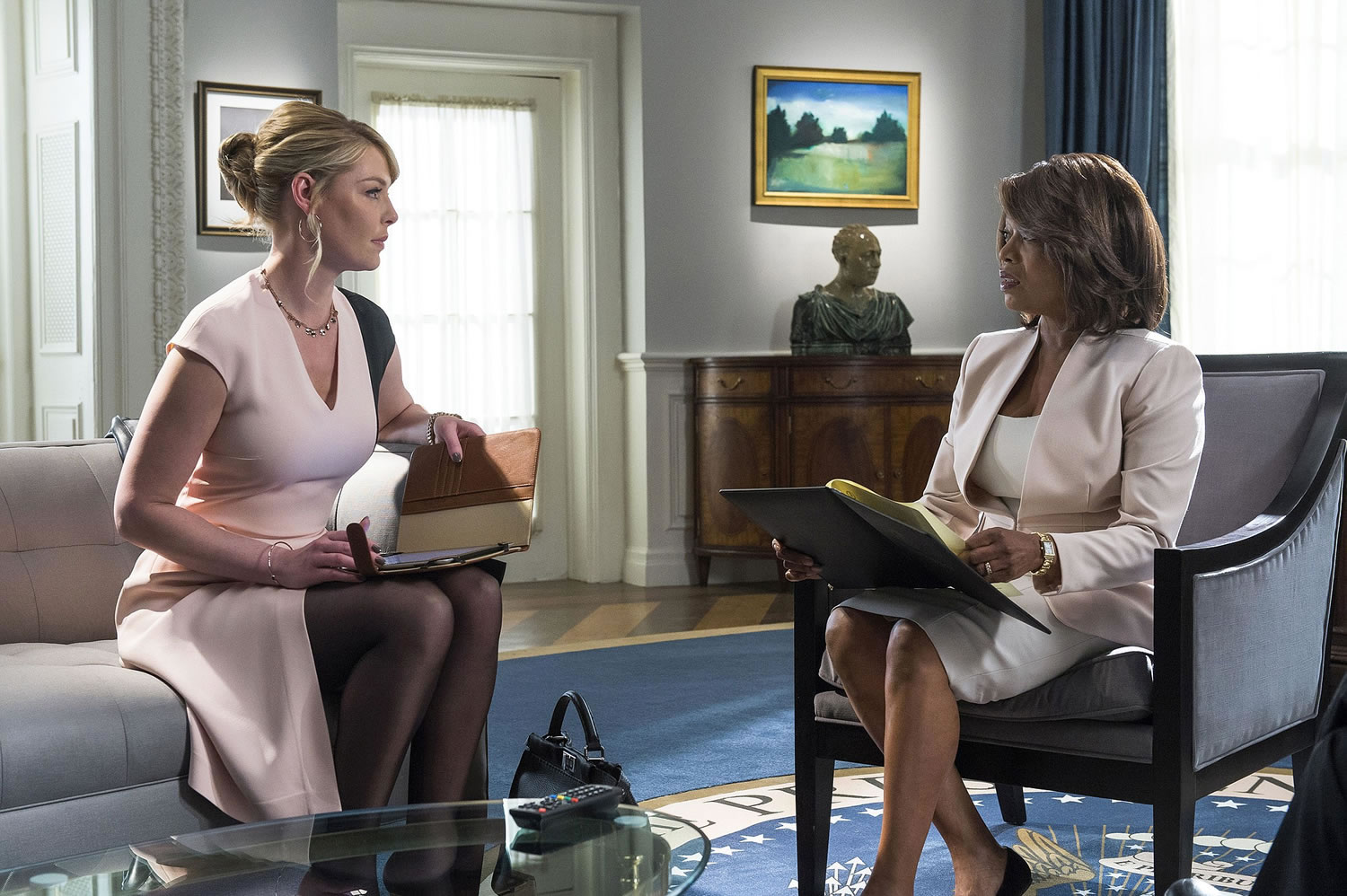My colleague, Washington Post TV critic Hank Stuever, is not wrong to call “State of Affairs,” which premiered Monday night on NBC, a “nicely polished but plenty bananas CIA drama.” After all, the series gives “Homeland” star Carrie Mathison (Claire Danes) a run for her crazy by introducing us to Charleston Tucker (Katherine Heigl), the daily security briefer to President Constance Payton (Alfre Woodard), shortly after her fiancé — who also happens to be Constance’s son — is assassinated. And this is before we get to the conspiracies.
“State of Affairs” is following the path blazed by other shows featuring tough, even unpleasant, women who get things done in Washington, D.C., but it has the potential to take some of these ideas further. Rather than showing women as the powers behind the throne, a la “Scandal” rivals Olivia Pope (Kerry Washington) and Mellie Grant (Bellamy Young), or the people working to do work too dirty for the boys to handle, like Carrie in “Homeland”, “State of Affairs” puts a woman in the White House and makes another woman her most powerful national security aide.
And when I spoke to Woodard and Heigl this summer, they were eager to start a debate about what it takes for women to get power, and how they use it when they get the opportunity.
President Constance Payton both served in the first Gulf War herself and grew up in a military family. Woodard says this backstory was important to her both because it helped make Constance’s path to the White House more plausible, and because it gave her an opportunity to tell a fresh story about military women.




